

Moodubelle: Nomad fishermen from Chikmagalur in search of livelihood
By Eugene DSouza, Moodubelle
Bellevision Media Network
Moodubelle, 02 Mar 2013: I had seen them last year and even year before last camping at the ground on the northern bank of Belle River at Poydapadi closer to the bridge. A band of around twenty persons, distributed in five families cooking their food under the open sky and making one of the corners of the open ground as their temporary home. I was under the impression that they were part of a nomadic tribe moving from place to place, may be in search of temporary employment and as such their presence did not evoke much interest in me.
On Wednesday, February 27, 2013, I had to take few pictures of the old ferry crossing (kollov) to support a forthcoming article in Konkani by Fr. Denis Castelino in Bellevision.com about his nostalgic memory of the tall Muslim boatman who used to ferry people from Moodubelle to the other side of the river and vice versa before the bridge came into existence. When I mentioned about my mission, Commodore Jerome Castelino also wanted to revisit the site which was the lifeline for four years while he was going to Innanje School may be around 70 years back.
Armed with the camera, both of us parked our vehicles by the side of the road and trekked to the riverside where the original ferry crossing was located. The old house of the Muslim boatman with thatched roof on the edge of the river had given way to tiled roofed house. Even this house is in a dilapidated condition and was closed. But the presence of four dogs outside the house indicated that there may be someone staying in the house but might have gone out.
After clicking few pictures of the surrounding area and the old ferry crossing, we came back to the vehicles where we had parked. As we were about to leave, we could see few unfamiliar persons on the other side of the road with their belongings spread across and some of them resting under a circular disc used as protection from the evening sun. We also saw fine bundled nets.
Curiosity took us to the people and to know about who these people were and what they were doing at that spot, we opened conversation with them in Kannada language.
Following our interaction with these people, we learnt that they belonged to the ‘Besta’ (fishermen) community residing in the Kadur taluka of Chikmagalur district. Every year, in the month of January or February they migrate to the coastal region along with their families carrying nets and the round shaped float which they call ‘theppa’ which is used as a boat to carry four to five persons in order to spread nets in the river. Around twenty persons, elderly, young and children including women divided into five families had camped at that spot since four days.
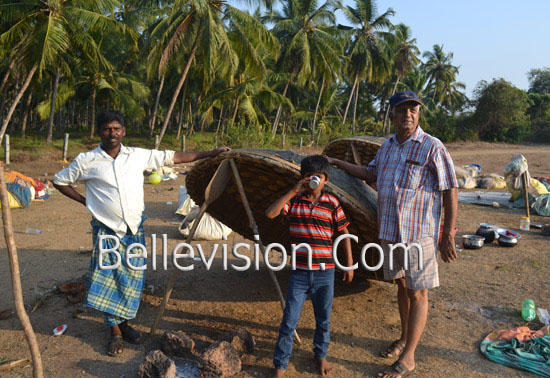
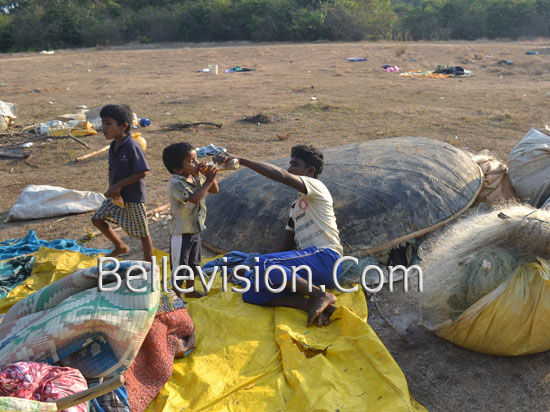
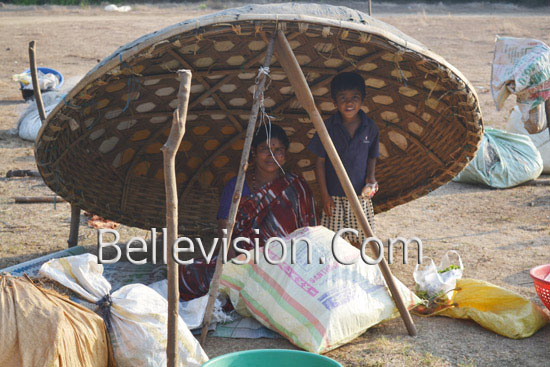
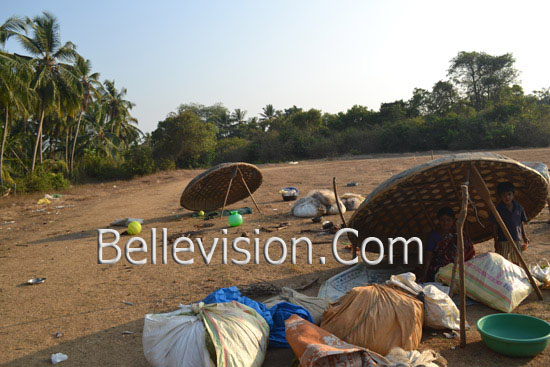
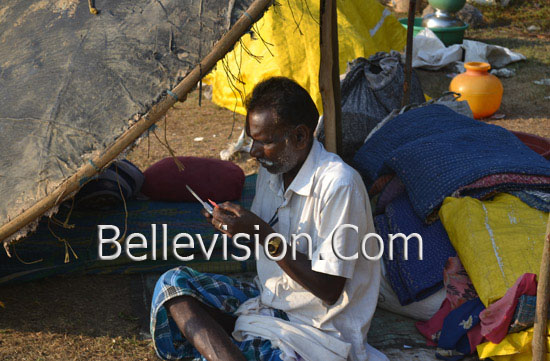
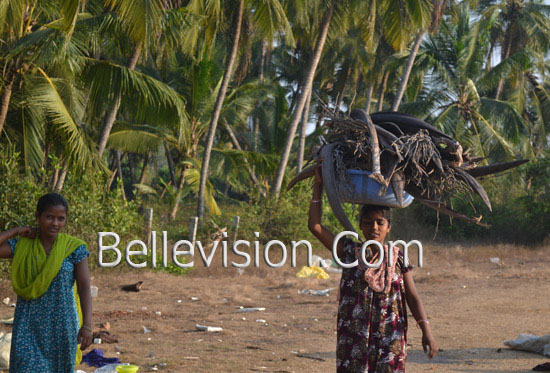
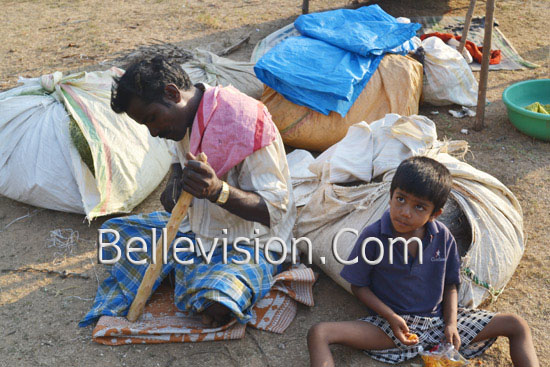
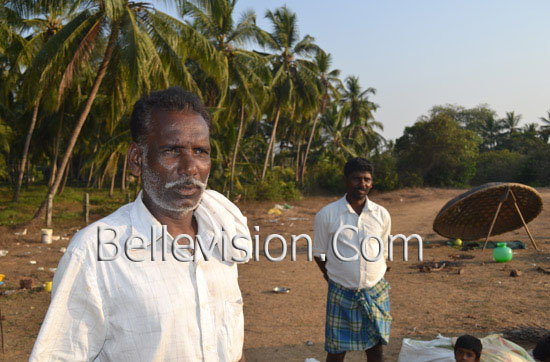
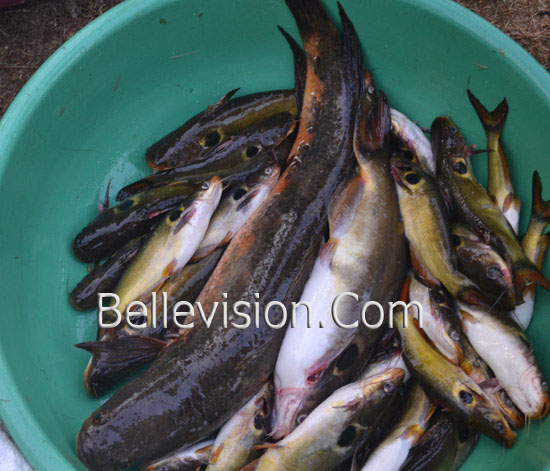
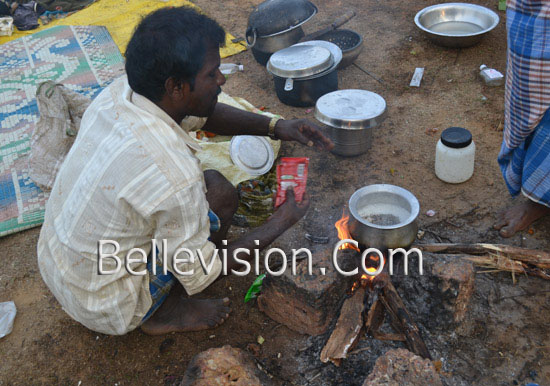
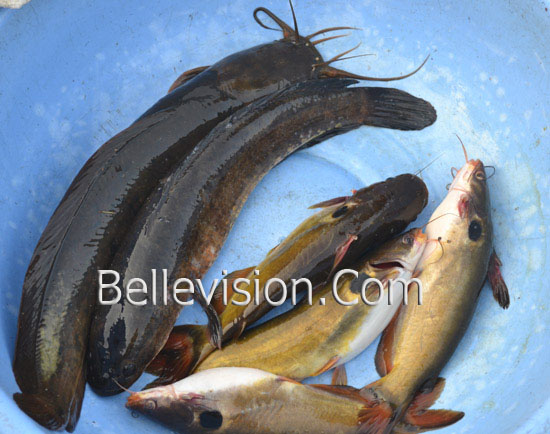
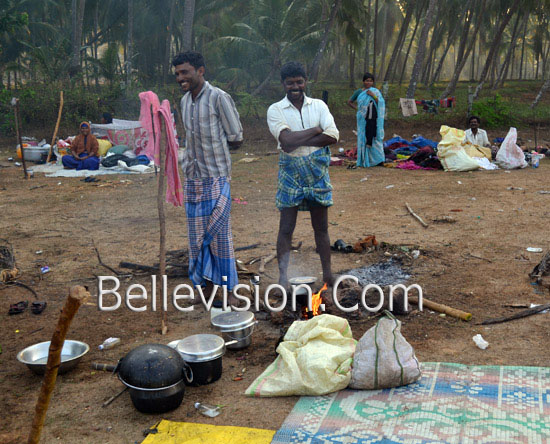
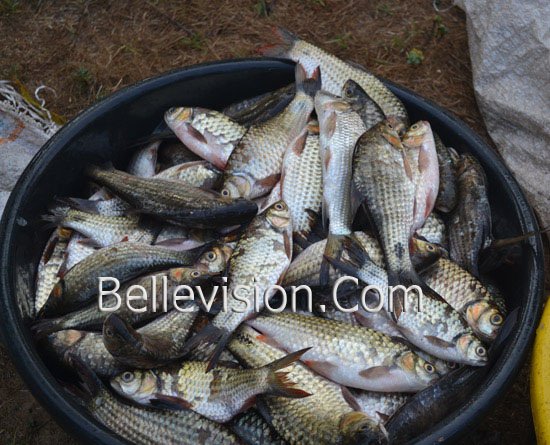
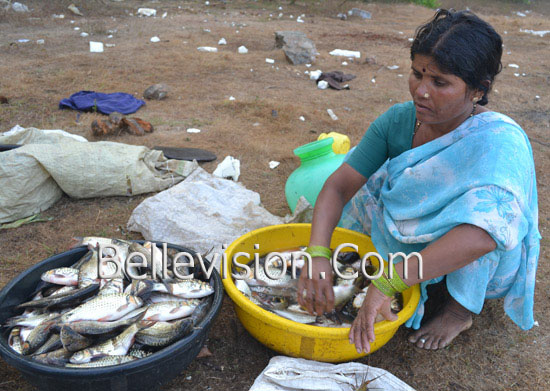
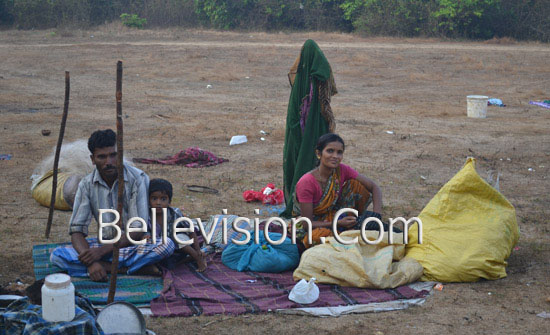
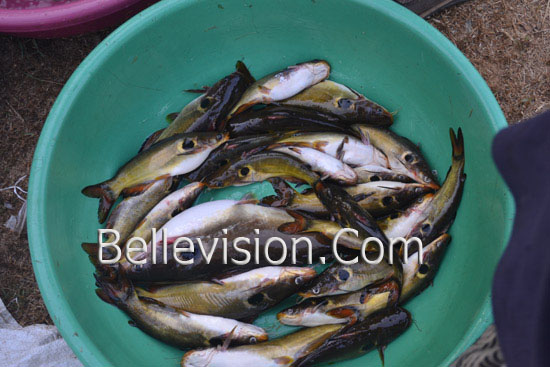
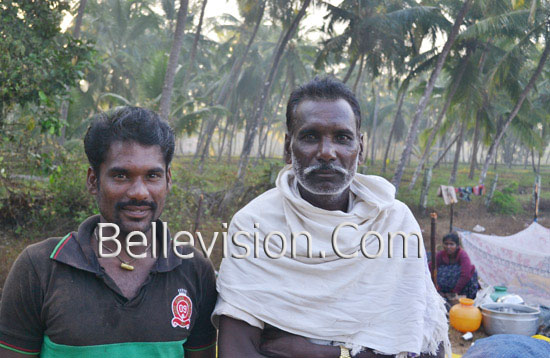
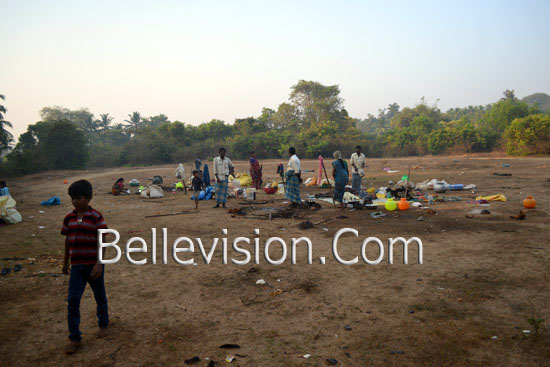
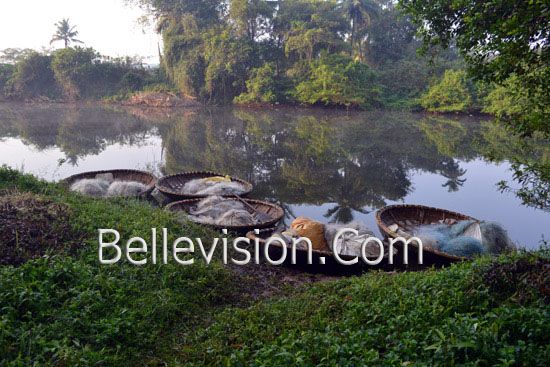
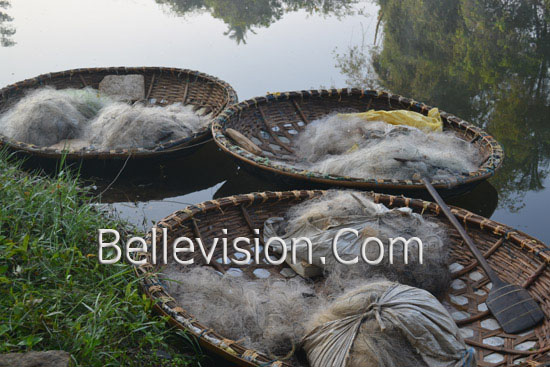
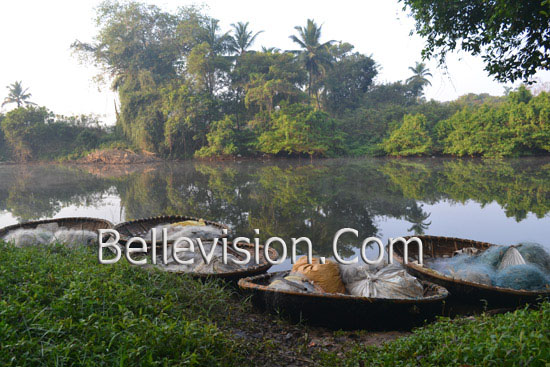
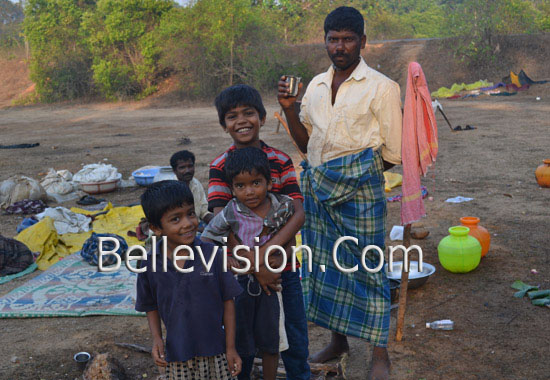

Annayya, aged about 55 years and the leader of the group said that they had been coming to this place for fishing for the past 20 years. Every morning at about 4 am the five families set out in their respective ‘theppas’, carrying nets. After carefully selecting the spot for a better yield of fish, they spread their nets and wait for about three to four hours by which time the fish that moves across gets trapped in the nets. Pulling the nets over the ‘theppa’ they collect the trapped fish in plastic basins and move to their camp by 8 am. Major portion of the fish comprises of madonjis, kijans, mugud, puryols and chikodes. Even white tortoise are trapped in the nets.
Each family gets the amount of the fish as per their luck and fishing skills. These fishermen dispose off some part of their catch to the locals. The reaming quantity is taken to Malpe, Katapadi and Udupi for disposal. Comparatively, the cost of the fish is little higher than that is available in the local market. On an average each family earns about thousand rupees per day. Major part of their daily income is being spent on day to day expenses and maintaining their equipments and families.
Seeing the young boys and girls around the camp, Commodore Jerome Castelino inquired about their education. The reply from Annayya, the community leader was that none of them have seen the door of the school as fishing has been their traditional occupation. When asked as to why they do not send their children to school as times have changed, their reply was that as they are nomadic it is not practicable for them to send their children to schools, besides they feel that if their children get educated they will not be available to carry on their traditional occupation.
Our observation in the camp was that every member of the community was quite healthy and cheerful. Each family has its own cooking arrangements with different menu. In the evening before dinner they enjoy their drink. All the five families live harmoniously and help each other. ‘Theppa’ has multipurpose utility, as a float while fishing and as a shelter during the day and night.
It seems that after the short stint of fishing camp at Poydapadi, the group will move to Mattu in Katapadi and later to other places till the beginning of the rainy season during which they go back to their home village in Kadur, Chikmagalur.